Your gut does more than break down food—it helps power your immune system, balance your mood, and regulate energy.
But not every bite helps that delicate ecosystem thrive. Some foods, even the ones we reach for daily, can feed harmful bacteria, irritate the gut lining, or disrupt digestion altogether.
These 20 common culprits may be quietly throwing your gut health off track.
1. Sugary Breakfast Cereals
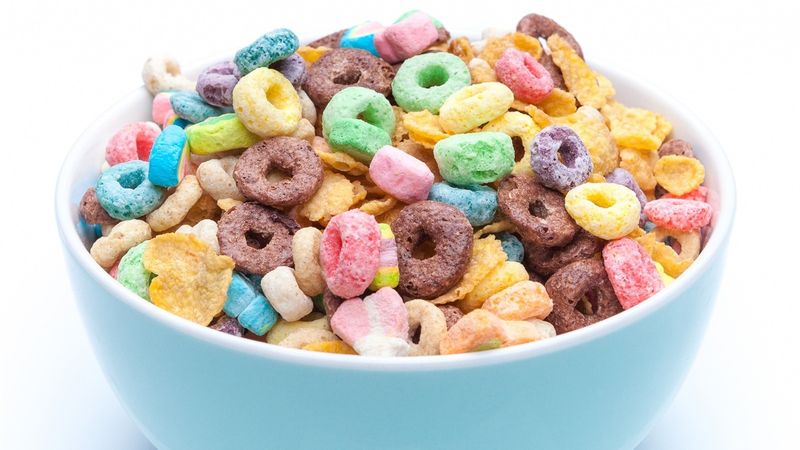
Many cereals aimed at kids—and even some for adults—are loaded with refined sugar and barely any fiber. This sugar feeds bad bacteria and yeast in the gut, leading to imbalance.
Plus, the lack of whole grains means your microbiome doesn’t get the nourishment it needs. Starting your day with a spike can leave your gut struggling to keep up.
2. Diet Soda

It might have zero calories, but diet soda comes with a cost. Artificial sweeteners like aspartame and sucralose can confuse your gut bacteria and reduce diversity.
Regular consumption has been linked to increased glucose intolerance and bloating. Even the carbonation can irritate sensitive stomachs over time.
3. White Bread
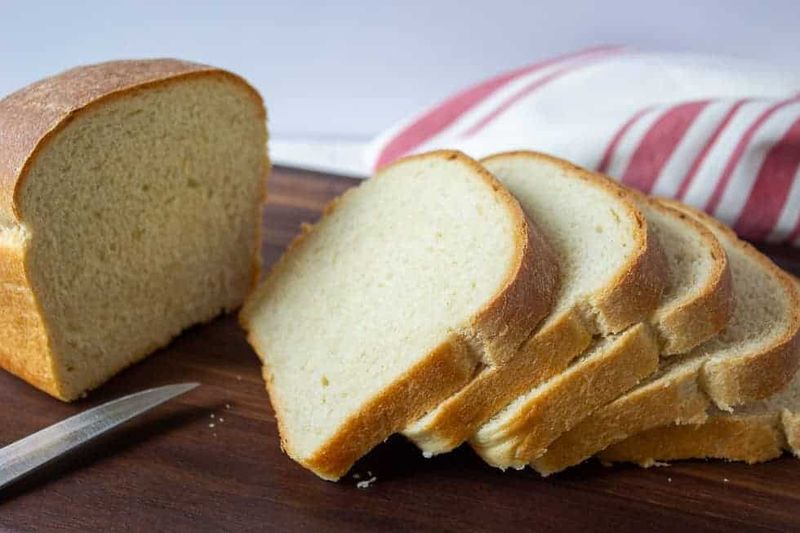
Made from stripped-down wheat, white bread digests quickly and lacks the fiber needed to feed healthy gut microbes. It acts more like sugar once it’s broken down.
This quick-burning carb can encourage bloating and sluggish digestion. Switching to whole grain or sprouted versions makes a noticeable difference.
4. Processed Meats
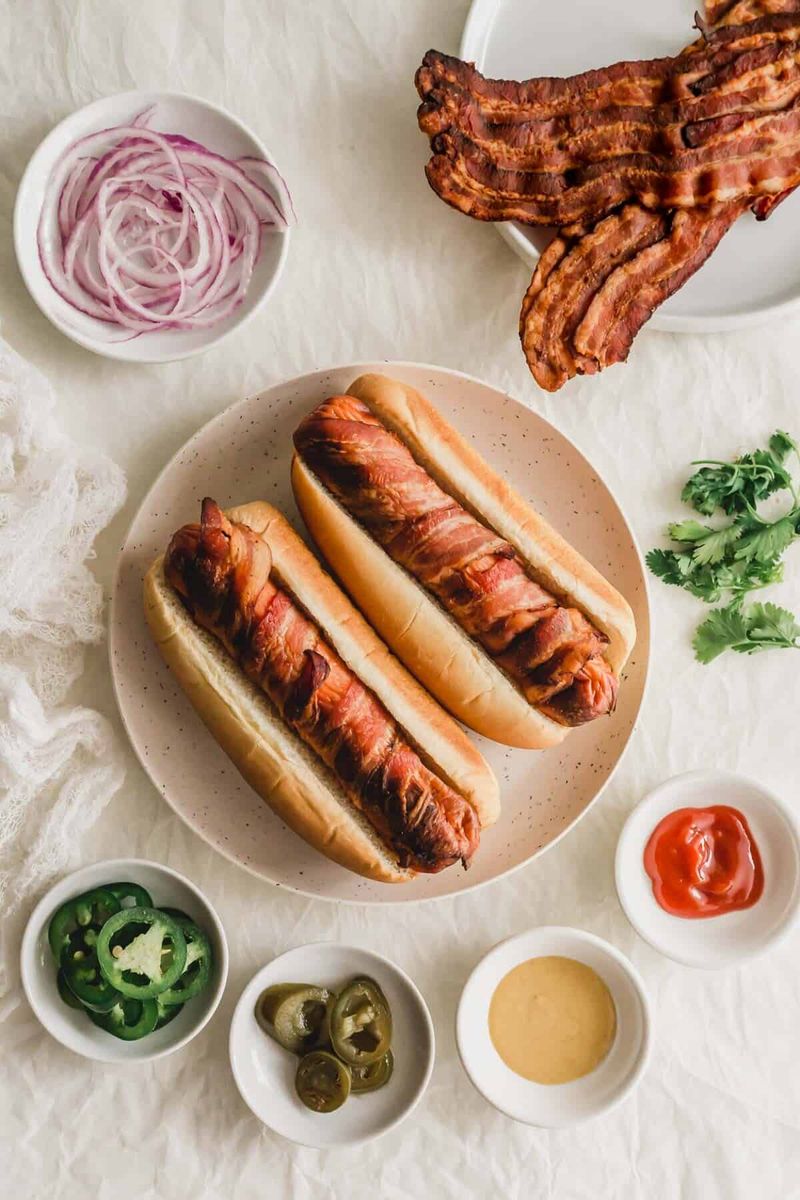
These meats often contain nitrates, nitrites, and chemical preservatives that may harm the gut lining and increase inflammation. They’re also high in saturated fat and salt.
While fine in moderation, daily consumption can contribute to long-term gut imbalances. They offer protein—but not the kind your microbiome loves.
5. Artificial Sweeteners

Though marketed as sugar-free saviors, these sweeteners can interfere with how gut bacteria respond to glucose. Some strains may flourish while others die off.
This shift can affect insulin sensitivity and lead to digestive discomfort. They’re in diet foods, gums, and protein bars—often hiding in plain sight.
6. Potato Chips
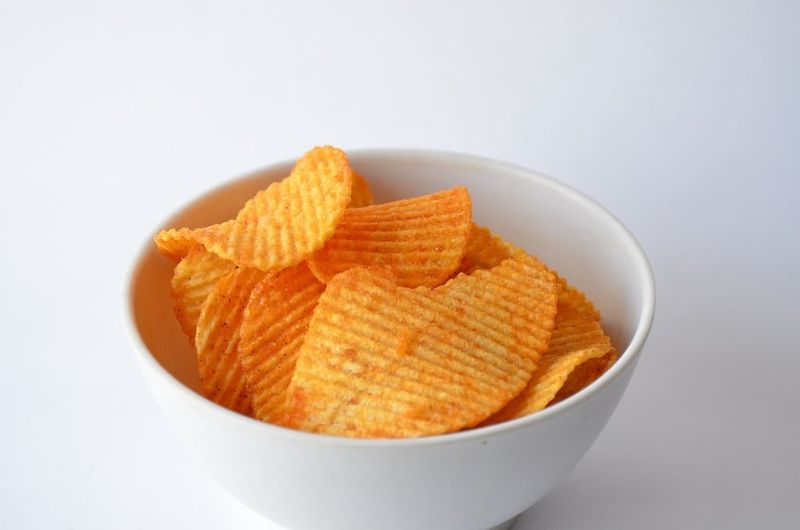
Ultra-processed and deep-fried, chips offer no fiber and plenty of inflammatory oils. The combination can inflame the gut and slow motility.
Many also contain preservatives and flavor enhancers that irritate sensitive digestive systems. They crunch, but they don’t nourish.
7. Instant Ramen

Convenient but often nutritionally empty, most ramen packs contain refined noodles and salt-laden flavor packets. The high sodium can affect gut permeability.
Additives like MSG and preservatives also challenge your gut’s natural balance. It’s fast food with slow consequences for gut health.
8. Fried Foods
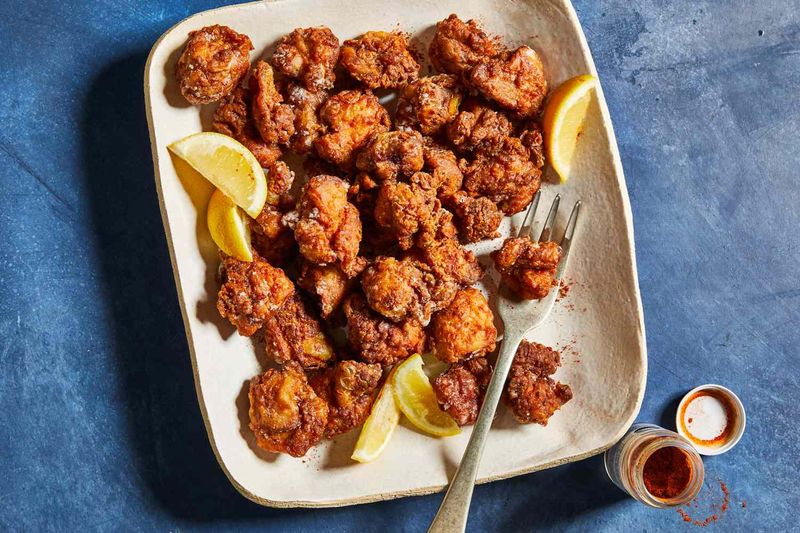
Anything fried in oil—especially repeatedly used oil—can be hard on the digestive system. The gut lining doesn’t respond well to rancid fats.
These foods may also trigger inflammation and alter bile production, which affects nutrient absorption. They sit heavy and offer little in return.
9. Packaged Cookies
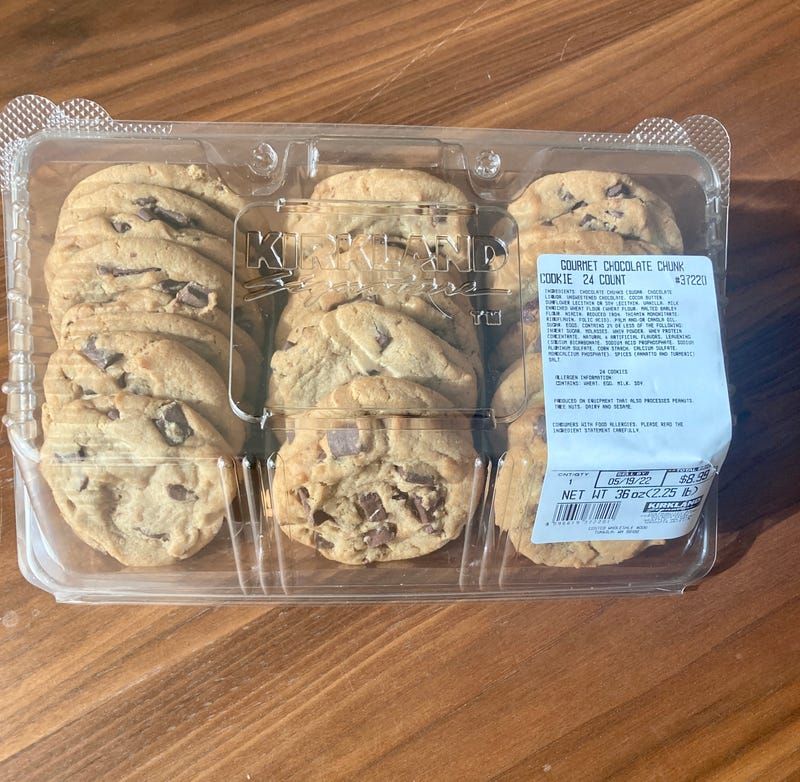
From trans fats to high-fructose corn syrup, packaged cookies are more lab than kitchen. They’re rich in sugar and poor in fiber.
These ingredients can inflame the gut and promote bad bacterial growth. Even a small handful can leave your system feeling off balance.
10. Flavored Yogurts
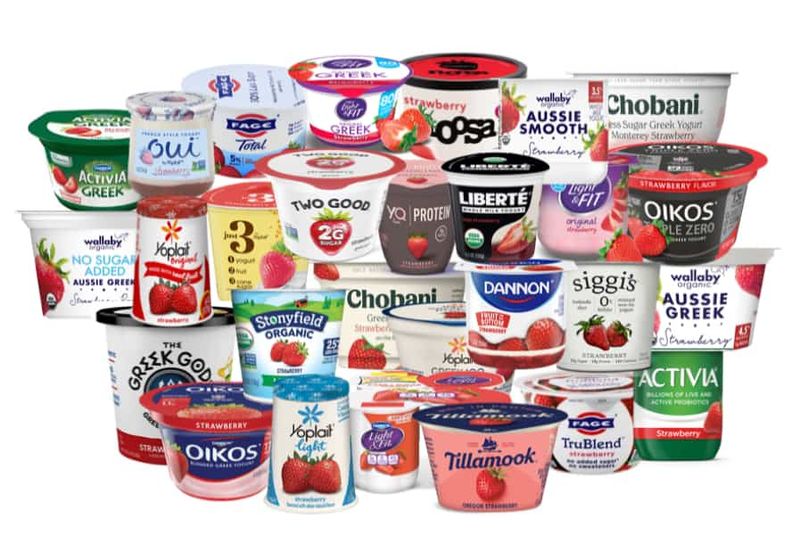
Yogurt should be gut-friendly, but when loaded with sugar, it becomes part of the problem. Many flavored versions rival desserts in sweetness.
Too much sugar can override the probiotic benefits. Stick with plain varieties and add fruit for flavor without the microbial chaos.
11. White Rice
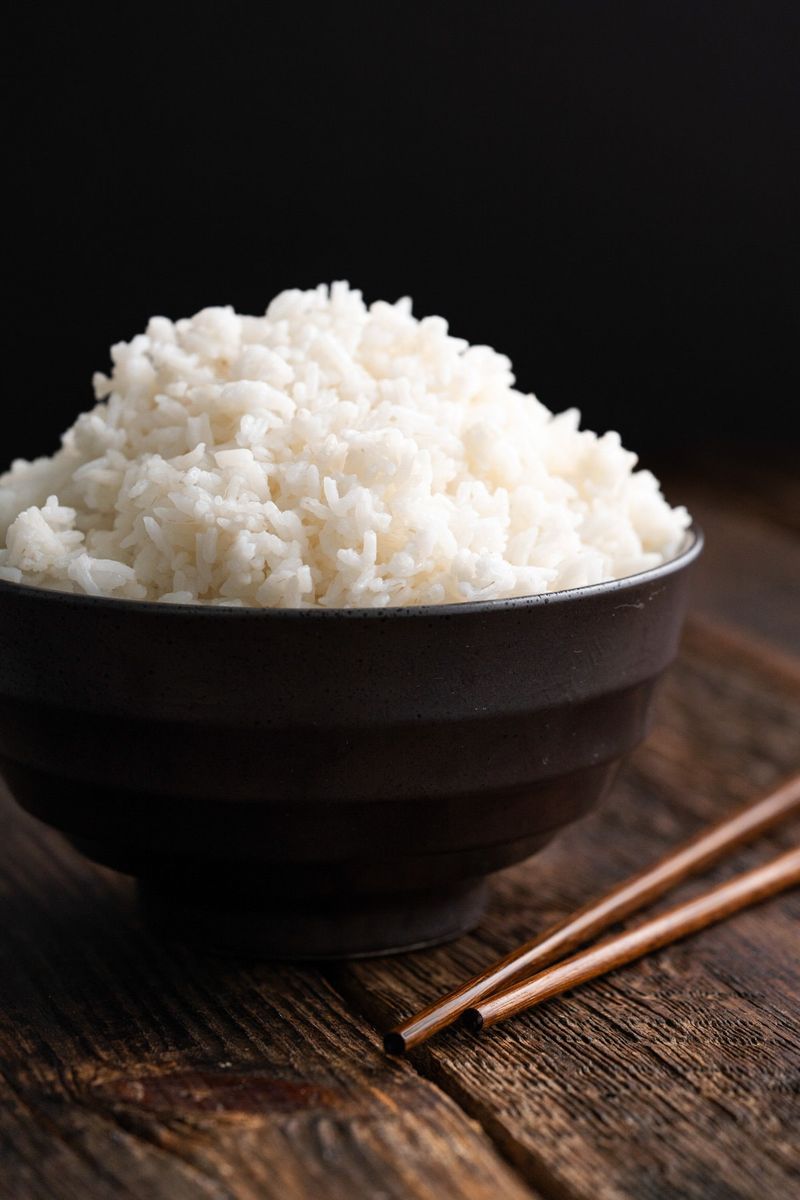
Though easier to digest for some, white rice is low in fiber and high on the glycemic index. That can cause blood sugar spikes and sluggish digestion.
Brown rice or wild rice keeps the gut happier by delivering prebiotic fiber and slow-release energy.
12. Candy
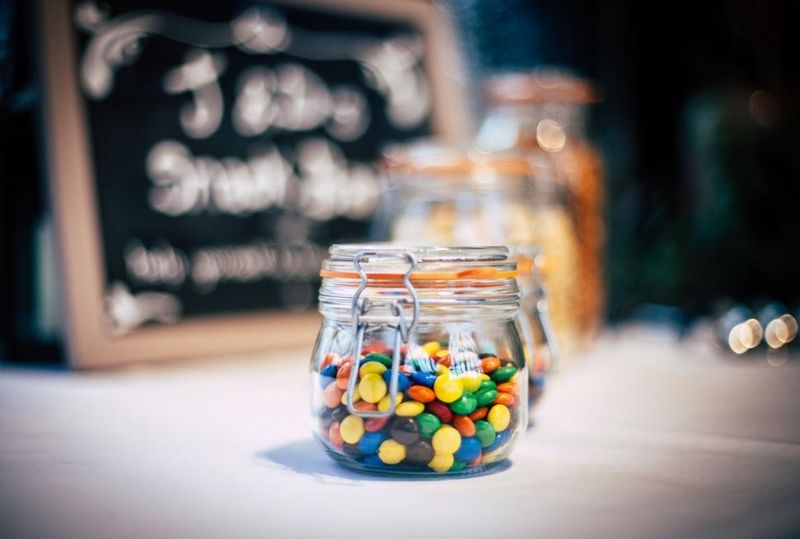
Pure sugar and artificial dyes make most candies a nightmare for gut balance. They feed yeast and harmful bacteria while offering zero nutrients.
Many also contain emulsifiers that disrupt the gut barrier. A sweet moment today can mean bloating or fatigue tomorrow.
13. Store-Bought Salad Dressings
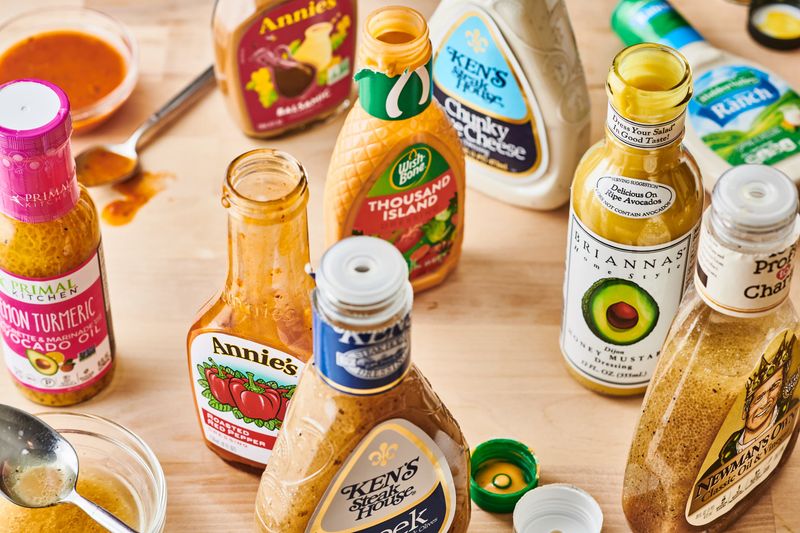
Bottled dressings often contain preservatives, sugar, and seed oils that irritate the gut lining. Even “light” versions are heavy in emulsifiers.
Making your own with olive oil and vinegar supports digestion. What you drizzle on greens matters just as much as the greens themselves.
14. Frozen Pizza
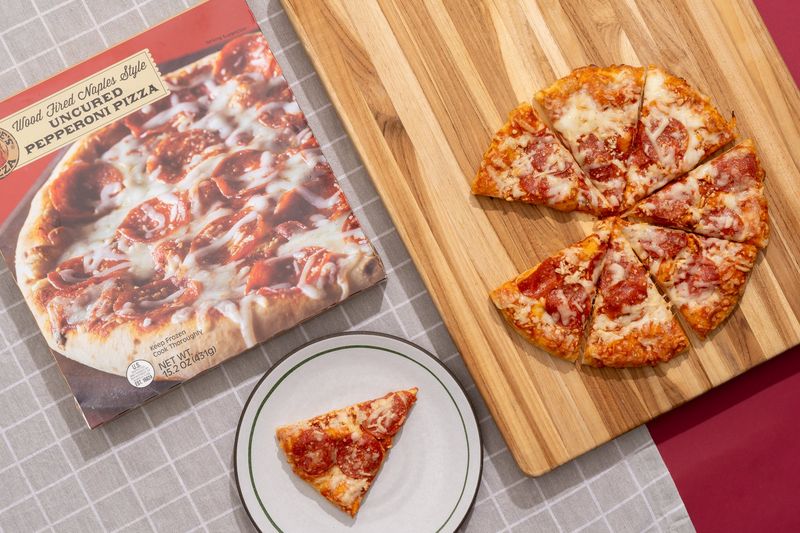
Convenient but highly processed, frozen pizza is a trifecta of refined flour, low-quality cheese, and sodium-heavy sauce. It’s easy to digest, but not in a good way.
This combination often leaves the gut sluggish and overworked. It’s a comfort food that doesn’t comfort your microbiome.
15. Fast Food Burgers
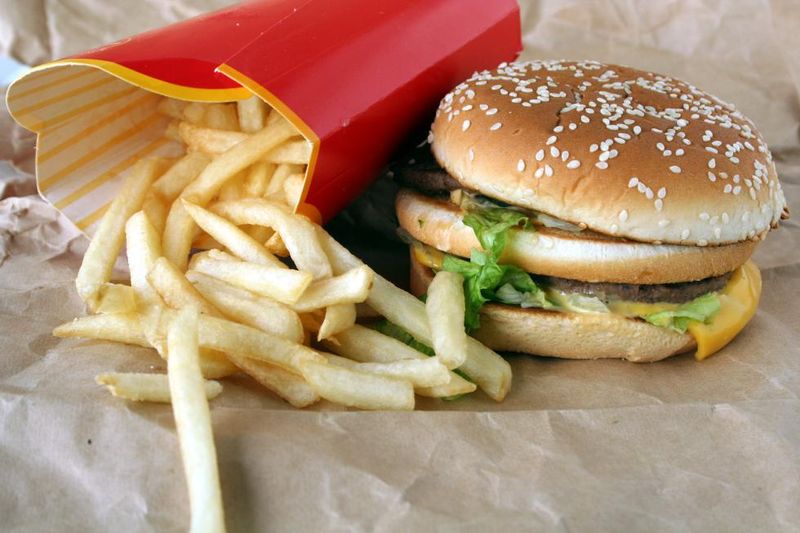
Highly processed buns, fatty cuts of meat, and sugary condiments come together in a way that overwhelms digestion. There’s little fiber to slow the ride.
Many also contain additives and binding agents that stress the gut. Occasional indulgence is fine, but daily drive-thrus can drive your gut health down.
16. Fruit Juice Cocktails (Not 100% Juice)
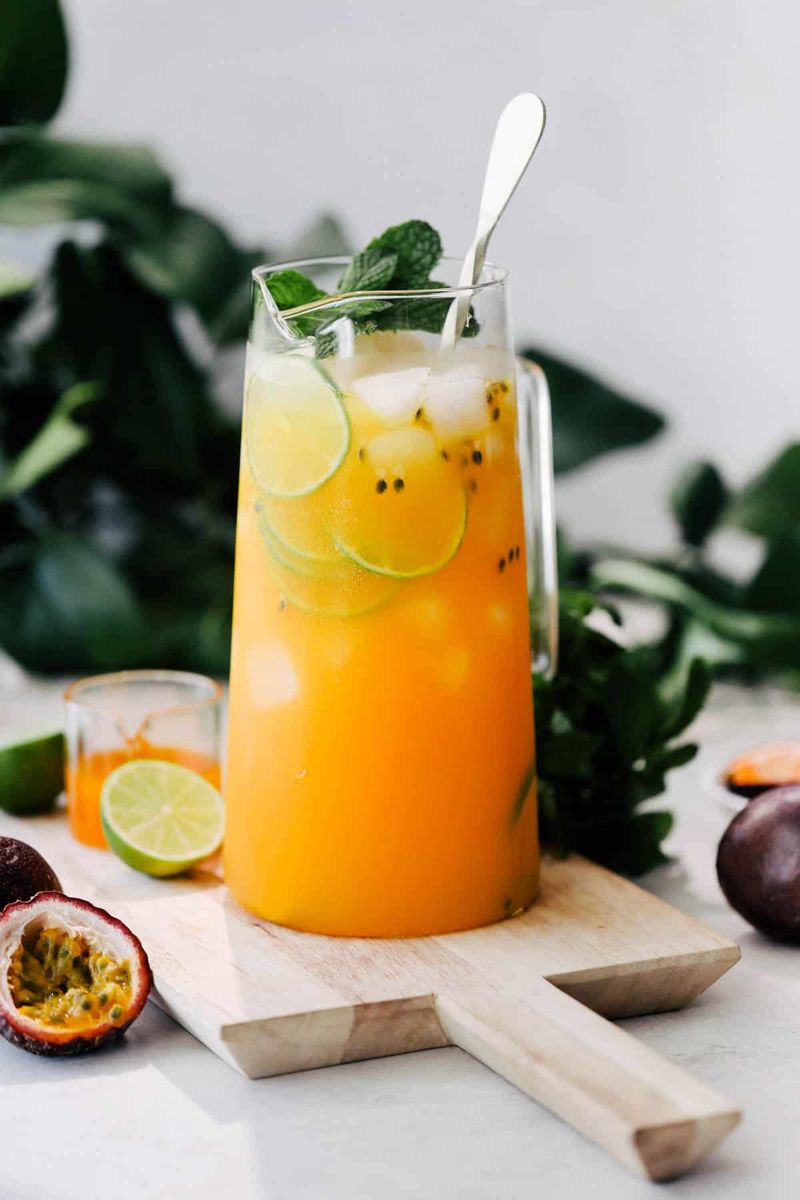
These brightly colored drinks often contain high-fructose corn syrup and artificial flavorings. Unlike whole fruit, they have no fiber to balance the sugar load.
This leads to quick absorption and microbial chaos. Stick with water or real juice cut with sparkling water to support your gut.
17. Microwave Popcorn

Those butter-flavored bags often contain diacetyl and other chemicals linked to inflammation and respiratory issues. Your gut doesn’t appreciate them either.
The packaging sometimes contains hormone-disrupting substances that can affect gut health indirectly. Plain kernels are a much better bet.
18. Ice Cream With High Fructose Corn Syrup
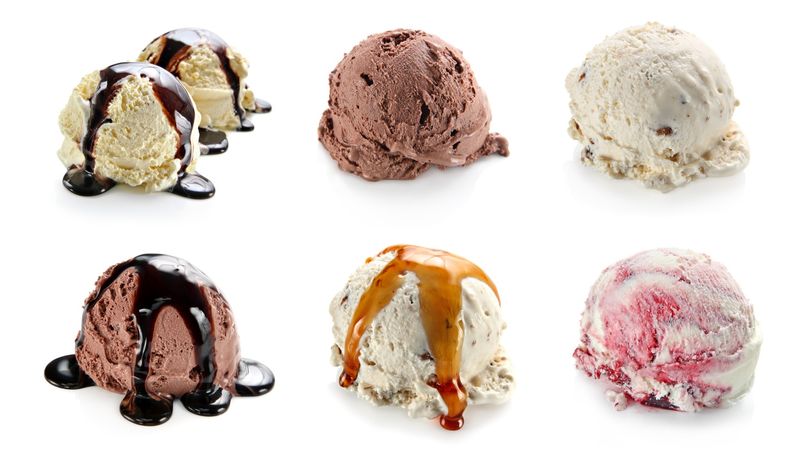
That creamy scoop may also contain artificial gums, syrups, and stabilizers that disrupt gut flora. High fructose corn syrup feeds the wrong bacteria.
Some brands also pack in emulsifiers that weaken the gut lining. Occasional indulgence is fine, but daily bowls add up.
19. Energy Bars (With Added Sugars And Syrups)
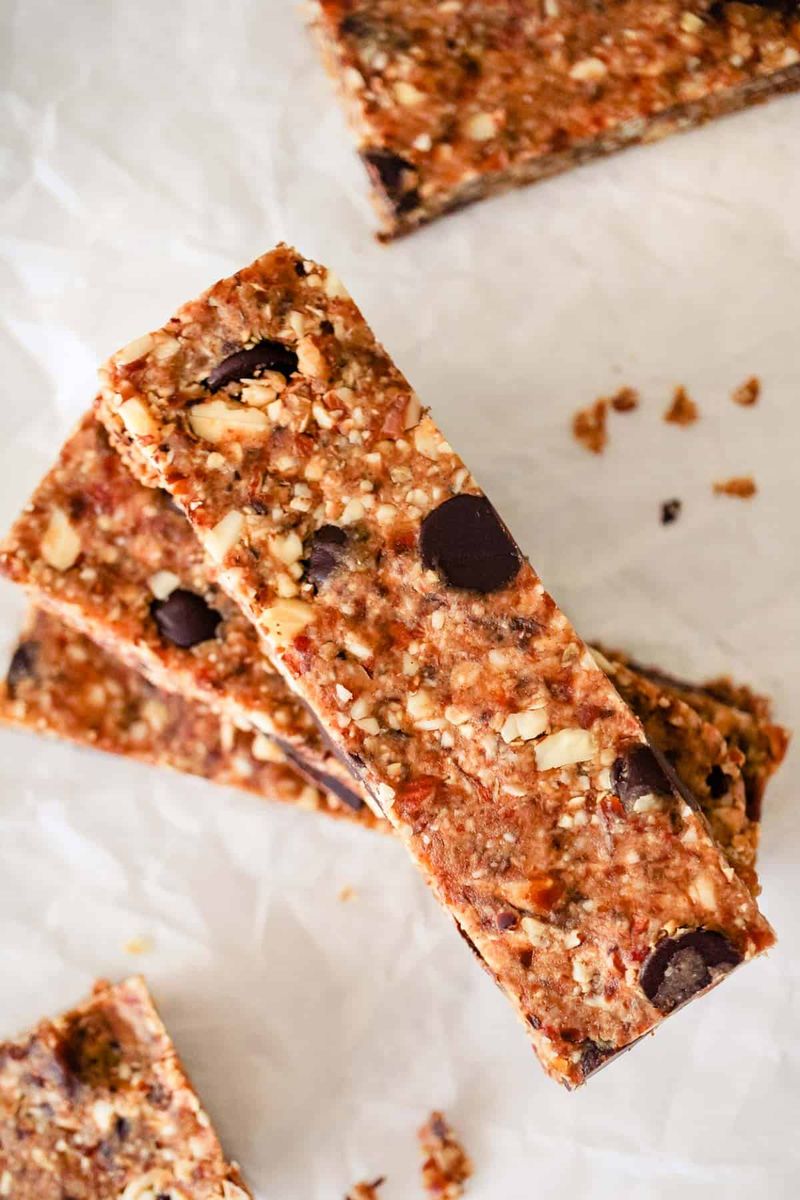
Often disguised as health food, many bars contain more sugar than a candy bar. They’re made with syrups, oils, and isolated proteins.
These ingredients can cause bloating and inflammation. Choose bars with whole nuts, oats, and natural sweeteners to protect your gut.
20. Alcohol

Alcohol disrupts the gut barrier, kills beneficial microbes, and promotes inflammation. Even small amounts can shift gut function in sensitive individuals.
Red wine in moderation has some perks, but excess drinking wears down your microbiome fast. Balance and hydration are key.

